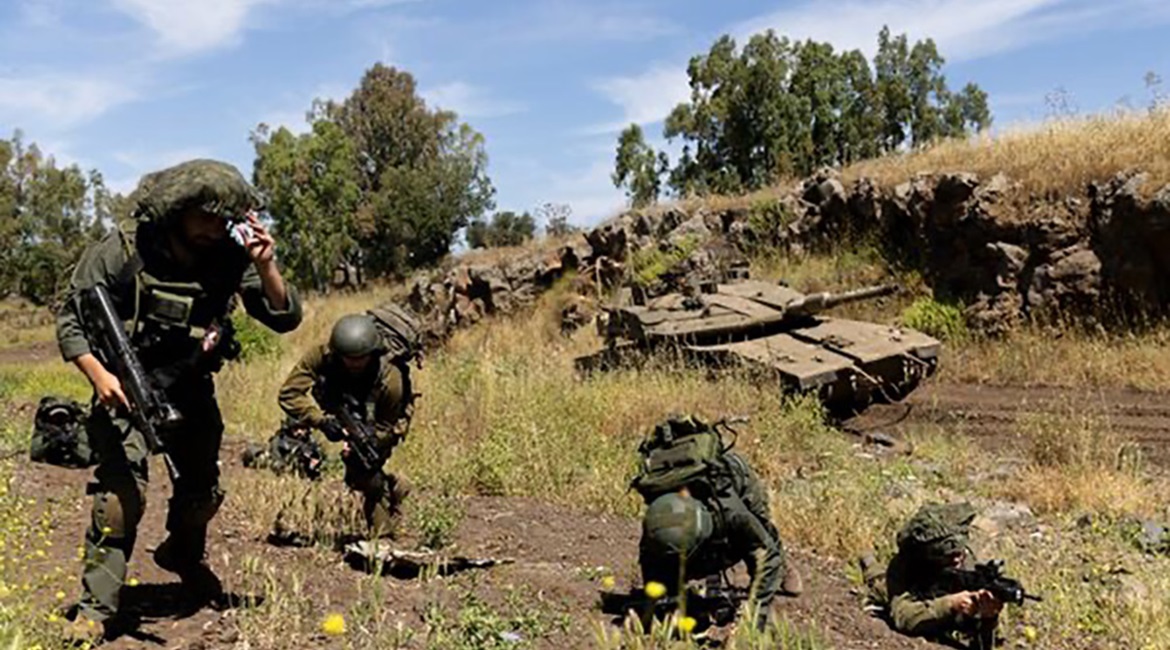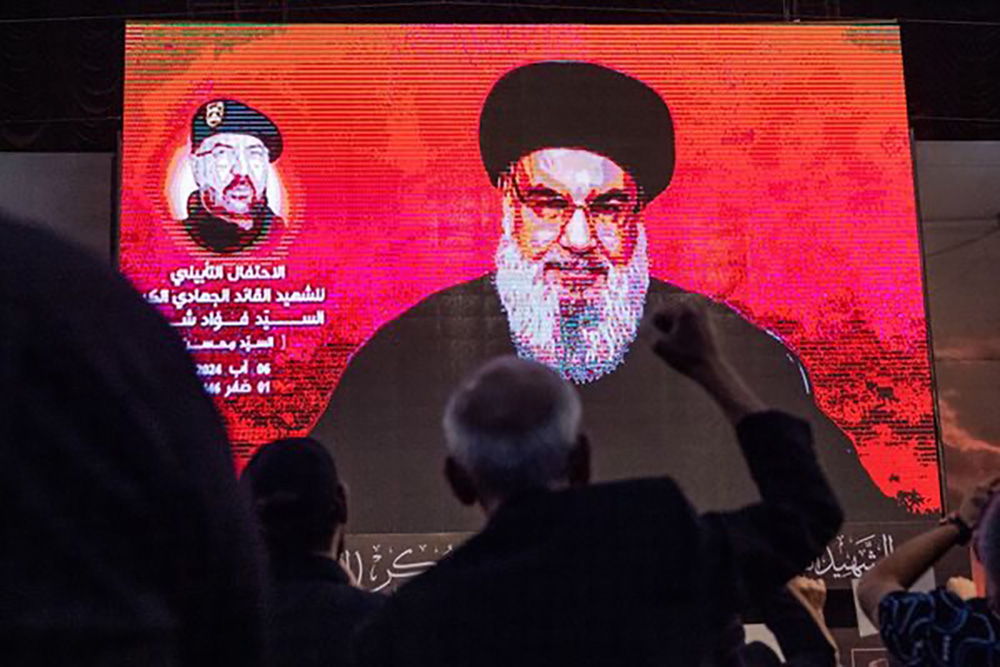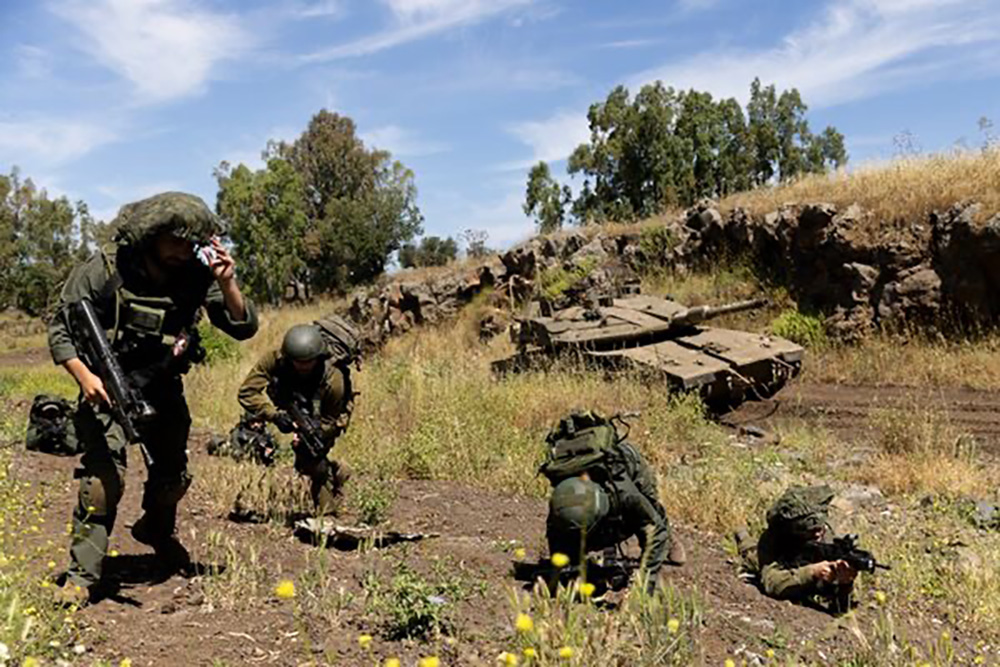
Date Posted: 22-Aug-2024
Hamas' 7 October 2023 attack and Hizbullah's subsequent attacks have exposed a fundamental strategic dilemma for Israel, in which the country cannot rely on early warning or air-based punitive deterrence to guarantee its security. The former Commander of the IDF's Dado Center for Multidisciplinary Military Thinking, Brigadier General Eran Ortal (retd) , argues that the Israeli military can exploit rapid technological advancement to modernise the IDF's ground manoeuvre, enabling a fast and decisive defeat of Hizbullah's fighting capabilities breaking Israel's strategic stalemate with the group
Key points
- Although the Israeli military has several available approaches to a war with Hizbullah that it could undertake, the IDF currently does not have the capability to quickly remove the threat posed by Hizbullah and retain freedom of action to conduct follow-on operations inside Lebanon
- It is possible for Israel to achieve a significant impact on Hizbullah's fighting capability, particularly in southern Lebanon, through the deployment of a data enhanced anti-fires manoeuvre (DAM) capability
- Such a capability would likely require five layers: Multidomain intelligence, surveillance, and reconnaissance units; fire-suppression units; tactical air-defence formations; enhanced close fire support; and large capacity underground neutralising units. This capability development could be conducted in as little as three years
Strategic background
Israel's current strategic dilemma of what to do on its northern front while Hamas remains undefeated in the south continues.
This is a direct result of Iran's multifront proxy-based strategy and three decades of Israeli preference of punitive, air power-based attrition warfare.
The reliance on air power has left the Israel Defense Forces (IDF) with no decisive theory of victory against its most significant threats, once the signature mark of Israeli strategy. While there remains no realistic option for a decisive victory against Hizbullah as of August 2024, it is a prudent strategy for Israel to bide its time and develop its capabilities until such a war can be fought.
Israel is just starting to realise that its strategy of overlooking Iran's proxies on its borders and focusing almost entirely on Iran's nuclear programme was a failure. The ongoing war, initiated by the surprise attack from Gaza, and subsequent attacks by Hizbullah from Lebanon and Ansar Allah from Yemen clarify Israel's strategic challenge.
As powerful as its air force is, and as accurate and far-reaching its intelligence, Israel is at a severe regional disadvantage. It does not have the upper hand going in a retaliation competition scenario with the Iranian regime and its affiliated non-state armed groups (NSAGs).
 A supporter cheers while listening to Hizbullah leader Sayyed Hassan Nasrallah via a video link during a ceremony, marking the first week since the killing of Hizbullah's top commander Fuad Shukr on 6 August 2024 in Beirut, Lebanon. (Chris McGrath/Getty Images)
A supporter cheers while listening to Hizbullah leader Sayyed Hassan Nasrallah via a video link during a ceremony, marking the first week since the killing of Hizbullah's top commander Fuad Shukr on 6 August 2024 in Beirut, Lebanon. (Chris McGrath/Getty Images)
The only course of action open is a prolonged strategy of containing Tehran, consolidating the region to stand up to its regional policies, while degrading its affiliated NSAGs and making the Islamic Republic stretch itself until it collapses.
Hizbullah is the most capable Iran-affiliated NSAG, and is highly regarded by other Iran-affiliated NSAGs providing guidance and assistance to these groups.
After destroying most of Hamas' capabilities in Gaza and attaining operational freedom of action there, Hizbullah is the most pressing threat on Israel's border. Its elite Radwan Force, approximately 2,500–5,000 strong comprising mostly veterans of the Syrian civil war, poses an imminent threat to Israel's territory and civilians in the north.
Hizbullah's firepower includes a massive distributed and concealed arsenal of 100,000–150,000 projectiles including short-range rockets, artillery, medium- and long-range guided and cruise missiles, and unmanned aerial vehicles (UAVs). This arsenal is a much larger threat than all the Iran-affiliated NSAGs and other actors hostile to Israel combined.
As it stands today, Israel holds four fundamental approaches to a war in Lebanon:
- Attacking Lebanese national infrastructures and assets. This ‘State Responsibility' approach assumes Hizbullah is sensitive to the destruction of Lebanon and therefore the conflict will be resolved internationally before Hizbullah is able to extensively damage Israel's own critical infrastructure.
- Directly attacking Hizbullah. This approach has been highly prepared by the IDF and includes an abundance of targets known as the ‘Target Bank'. However, there are few Israeli military planners that view this course of action as capable of sufficiently degrading Hizbullah's capabilities.
- Push Hizbullah from Israel's northern border by a limited ground offensive and establish a security zone in southern Lebanon. This option will force the IDF to take the most heavily fortified part of south Lebanon, suffering heavy casualties. Israel will then find itself faced with a combined stand-off fires and guerilla campaign supported by Hizbullah's rear echelons.
- Take military control of most of Lebanon and slowly clear it of enemy forces and capabilities. This ‘Gaza style' war on a Lebanese scale will take years and consume the entire IDF and leave it vulnerable to guerilla warfare. It is also almost certain to drain Israel of war materiel and international support. In this weakened state, the Iranian-led axis will be able to exploit the situation.
 Israeli reserve combat soldiers of the 134th battalion take part in a training drill on 8 May 2024 in the Golan Heights. (Amir Levy/Getty Images)
Israeli reserve combat soldiers of the 134th battalion take part in a training drill on 8 May 2024 in the Golan Heights. (Amir Levy/Getty Images)
None of these approaches, or a combination of them, is likely to achieve the desired aim of quickly removing the threat of Hizbullah and creating operational freedom of action in Lebanon. This freedom is needed to prevent Hizbullah's re-armament and to inflict a high cost on any potential Iranian attempts to do so. In a broader perspective, an Israeli success will not only take out a major aspect of Iranian power but will also fundamentally undermine Iran's long-ranged-strike-armed NSAG strategy.






